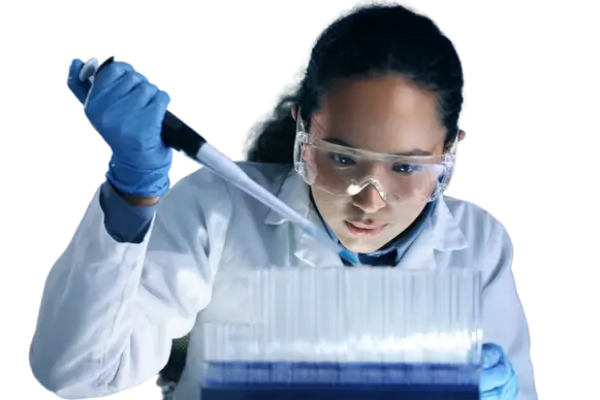
Dr. Patrick Soon-Shiong is welcomed by Pope Francis at audience for participants of a Vatican conference on regenerative medicine 28-30 April 2016 – RV
(Vatican Radio) I have had cancer, “the big C,” as they call it. It was late last summer when I got the shocking diagnosis and surgery – and then, the radiation therapy that made huge tufts of hair fall out and brought the other, far more painful and debilitating side-effects that I would rather forget. But so far, I have been one of the lucky ones who may have caught her cancer at an early stage.
Cancer: a thief in the night
More than 14 million people are diagnosed with cancer each year. Almost every family I know has lost someone dear from this thief in the night. My dad was one of the 8.2 million people to succumb to it every year. My mom, 3 grandparents, a cousin, and an uncle all had it. Three of the eight of us are still alive.
And no, I am not out of the woods yet. Fingers crossed, my next round of follow-up tests will tell me that I can breathe easy for a while.
That’s why I leapt at the chance to follow a recent Vatican conference on regenerative medicine and the cellular therapies evolving in the search for a cure for cancer and rare and other diseases.
It was the third such conference held in the Vatican on the Progress of Regenerative Medicine and its Cultural Impact and gathered some of the world’s leading doctors and medical researchers who presented their work and discussed ways at making diagnosis and treatment more widely available and accessible.
I am no whiz kid when it comes to the kind of scientific terminology I heard during the three day workshop 28-30 April 2016. Terms like “chimeric antigen receptor T cell therapy.” And I was totally ignorant of the challenges posed to patients and parents of children suffering from such rare and excruciating inflammatory skin disorders like the seemingly innocuous “Butterfly Disease.” I was humbled by what I learned.
New keys to unlock therapies against cancer, rare diseases
But the thing that I took home most of all from that conference was hope. Hope, because I learned that advances in cancer research have significantly accelerated in the last five years. Hope, because researchers may have finally found vital keys to unlocking the potential of stem cells and our body’s own immune system to fight disease and to repair what’s gone wrong.
Dr. Patrick Soon-Shiong: “Pontifical Key Visionary” in fight against cancer
At the Vatican event, I met Dr. Patrick Soon-Shiong, the founder of the Cancer Breakthroughs 2020 program, a collaborative alliance of large pharma and biotech companies, businesses, oncologists and academia working together to speed up development of new combination immunotherapies in cancer treatment.
Aiming for the Stars: a cancer vaccine for the future?
Soon-Shiong and his partners are aiming for the “Breakthroughs:” an effective vaccine-based immunotherapy to combat cancer by 2020. There’s even talk of such a vaccine being used in cancer-prevention.
A surgeon, researcher, businessman and philanthropist, Dr. Soon-Shiong and his team are developing new, and personalized vaccines which educate the body’s own immune system to defend itself against cancer cells and kill them off.
At the Vatican, he received the 2016 Pontifical Key Visionary Award which “recognizes medical innovators who change the course of history and reduce suffering on a global scale by blending visionary thinking with real action.”
He explained to me how the vaccines work:
Listen to the program by Tracey McClure:
SS: “What we’ve discovered sadly is that cancer is a treacherous thing in the sense that it’s now made out of multiple clones, some asleep, some awake. So when we’ve been treating it heretofore with high dose chemotherapy, we may have killed those clones that were awake but we actually let those clones that were asleep, escape and create metastasis. And then we call this incurable and the patient suffers some of the high toxicity of the chemotherapy.
We’ve taken now a complete different approach. That we can identify all these clones through a genomic test. Identity the sequences that are causing this cancer to grow and to spread and take these sequences and educate your immune system back again to go and kill the cancer from outside.
The immune system is complex because there are multiple cells called natural killer cells, killer T cells and dendritic cells. It is the dendritic cells that need to be educated so that they can wake up the T cells and the natural killer (NK) cells. We have figured out a way to wake up the dendritic cell with a vaccine equivalent to that of a flu shot, using a common cold virus to deliver to the dendritic cell the information to wake it up.”
A cancer “flu shot:” a new cure-all?
TM: What does this mean for patients? Is it a new cure-all for every form of cancer?
SS: “What’s exciting is that this attacks every form of cancer because every form of cancer has a mutation. It’s even more exciting and at the same time difficult, because every cancer is specific to you. Meaning, you are your cancer. It’s your genome that’s gone awry. Which means we need to analyze every patient…But it also gives us an opportunity to find that sequence, like the Da Vinci Code, Enigma, that’s hidden inside that cancer. That we can unearth and discover and then put it into this vaccine and then inject it. but we can also support this vaccine with the natural killer cell, that we can actually grow in an unlimited supply and grow these white cells, that are what you call natural killer cells and infuse [them] like a blood transfusion. So our view of the world of treating cancer now is to give the patient low-dose chemotherapy, a little [sub-cutaneous] injection like a flu shot and a blood transfusion. All that can be done as an outpatient – with a significant reduction in toxicity and a higher quality of life.”
Cancer: a chronic and completely livable disease
SS: “The idea is that if you educate these T cells and NK cells in your body and your own immune system to fight this cancer, you will generate a memory cell. Very much like when you take a flu shot, you generate memory. So you don’t get the flu. Well, we could generate the memory cells – so if the cancer decides to return, the memory cell is there. So that is tantamount to the cure because all of a sudden, cancer is now a chronic disease and completely livable like HIV or like Hepatitis.
I believe we have now entered the era where we think of cancer as an infectious disease and we can treat it based on knowledge that we can interrogate and find the right treatment for the right person.”
Pope Francis wants to see treatments made available, more affordable to people everywhere
TM: Pope Francis would like to see these therapies more widely available to people who are suffering.. that will take research, funding, involving more patients in trials – how can this be done?
SS: “It was such an inspiration…for us to be here, to be with the Pope. And he is absolutely right. I think, early on you saw that just for the check-point inhibitors, it’s a million dollars. You cannot bankrupt even a very wealthy country like America with cancer – but worse. You need to have the ability to have the poor, the underdeveloped countries, the community, to have access to these kinds of medications.”
Your body: the low-cost “pharmacy” of the future that does the healing
SS: “To me, what’s exciting is: I think I’ve come to realize that actually your human body is a biological factory, a pharmaceutical factory of the future. And if we can activate your human body with therapies that cost pennies, maybe dollars, and that’s exactly what this vaccine does. And that’s a very disruptive thing to do. But I think that’s necessary and that’s evolution – I think of humanity. But to get there, you’re absolutely right, we need to do clinical trials to validate this and this will need then the cooperation of governments, ngo’s, pharma’s, private sector.
I remember a sister that I worked with at Saint John’s who said to me, ‘no money, no mission.’ So we need to raise the money from all sources to make this work and prove – and importantly, once you’ve proven it, this must be made available to the rich and the poor alike… absolutely the developing world. And when you think about it, cervical cancer, colon cancer, lung cancers are some of the most growing cancers in the developing world. And this thing called ‘virally infected cancers:’ cancers that occur as a result of HPV viruses for example, is in the developing world. What’s exciting is this vaccine, even more so, goes after virally-infected cancers.”
(Tracey McClure)
Revised on [July 5, 2017] to reflect change of program name to Cancer Breakthroughs 2020.



